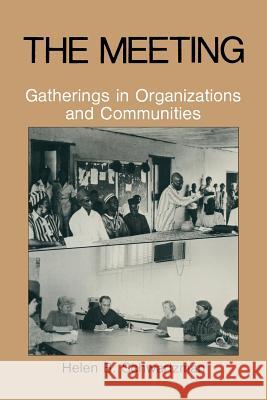The Meeting: Gatherings in Organizations and Communities » książka
The Meeting: Gatherings in Organizations and Communities
ISBN-13: 9781489908872 / Angielski / Miękka / 2013 / 344 str.
The Meeting: Gatherings in Organizations and Communities
ISBN-13: 9781489908872 / Angielski / Miękka / 2013 / 344 str.
(netto: 546,94 VAT: 5%)
Najniższa cena z 30 dni: 575,62 zł
ok. 20 dni roboczych.
Darmowa dostawa!
In writing this book I discovered that everyone I talked to had his or her own theory about meetings, and yet there is no theory of meetings in the research literature. This makes writing about this subject both excit- ing and hazardous. It is always exciting to examine the significance of something that has been ignored, but it is hazardous to write about something that everyone already thinks they understand. Without re- course to the legitimacy of a research tradition, readers are likely to evaluate this study based on their own theory. I have tried to take this into account by discussing what might be referred to as American folk theory about meetings (see particularly Chapter 3), and also by juxtapos- ing my own research in an American organization with research in traditional or non-Western societies as conducted by anthropologists. This juxtaposition throws into relief some of the important differences as well as similarities in views of meetings as well as the form of meetings across cultures. It is also the only way that I know to examine how and when one's cultural context is affecting one's theoretical constructions. If this book is successful, it will challenge what I believe is the most common interpretation of meetings found in American society, that is, that meetings are a blank-slate phenomenon useful as a tool for such functions as making decisions, solving problems, and resolving con- flicts, but having no impact on behavior in and of themselves.











